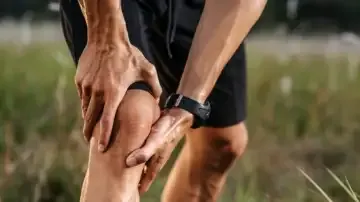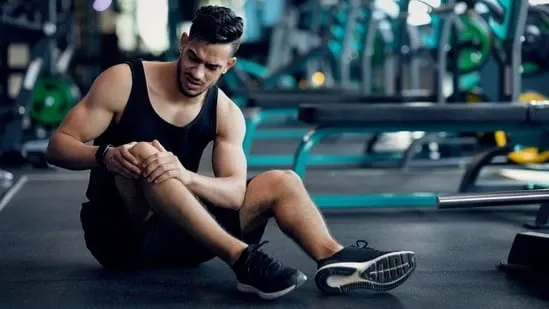HT Lifestyle has reached out to experts to understand why this trend is emerging and what factors could be contributing to it.
Why millennials are at risk of vitamin D deficiency
Dr Srisanat Rao, Orthopedic Surgeon, Zynova Shalby Hospital Mumbai shared, "Vitamin D is required for calcium absorption, bone health, and strong muscles. Millennials are more prone to Vitamin D deficiency because of their indoor-centric lifestyle. Desk jobs, digital entertainment, and erratic sleep cycles mean reduced sun exposure. Later, this deficiency can increase the chances of joint degeneration, fractures, and even osteoporosis."

He added, "However, timely testing, dietary correction, and lifestyle changes can help to manage the deficiency. Around 50%-60% millennials are currently suffering from low vitamin D levels. Monthly, 6 in 10 millennials aged 29 - 44 are complaining of symptoms such as stiffness, knee pain, back discomfort, and reduced mobility, which are linked to low Vitamin D levels. Regular Vitamin D testing, combined with bone density screening, can help avoid long-term joint problems. Those deficient in vitamin D will be advised to take supplements and be exposed to safe sunlight. The supplements should be taken as per the expert's direction."
Steps to maintain strong bones and joints
Dr Upasana Garg, Regional Technical Chief, Apollo Diagnostic, Mumbai, explained, "Bone health is essential for overall well-being and mobility. Unfortunately, approximately 60% of millennials aged 29-44 tested showed low Vitamin D levels, and signs of fatigue, bone pain, mood swings, and muscle cramps. Tests such as Vitamin D3, B12, calcium, and bone density screening can be booked at an advanced diagnostic lab. These tests can be booked online, with trained professionals visiting your home for sample collection at your preferred time."

"The testing is safe and there is no risk of infections, no multiple needle pricks, sterile vacutainer tubes give accurate results. Reports are delivered quickly in digital format, making it easier to share them with doctors and start timely treatment," says Dr Upasana.
Talking about the contributing factors, she explains, "Maintaining strong bones requires a combination of adequate calcium and vitamin D intake, regular weight-bearing and muscle-strengthening exercises, avoiding smoking, and limiting alcohol. Safe sun exposure and vitamin D supplements also play a crucial role. Taking proactive steps now can go a long way in preserving bone and joint health."

 He added, "However, timely testing, dietary correction, and lifestyle changes can help to manage the deficiency. Around 50%-60% millennials are currently suffering from low vitamin D levels. Monthly, 6 in 10 millennials aged 29 - 44 are complaining of symptoms such as stiffness, knee pain, back discomfort, and reduced mobility, which are linked to low Vitamin D levels. Regular Vitamin D testing, combined with bone density screening, can help avoid long-term joint problems. Those deficient in vitamin D will be advised to take supplements and be exposed to safe sunlight. The supplements should be taken as per the expert's direction."
Steps to maintain strong bones and joints
Dr Upasana Garg, Regional Technical Chief, Apollo Diagnostic, Mumbai, explained, "Bone health is essential for overall well-being and mobility. Unfortunately, approximately 60% of millennials aged 29-44 tested showed low Vitamin D levels, and signs of fatigue, bone pain, mood swings, and muscle cramps. Tests such as Vitamin D3, B12, calcium, and bone density screening can be booked at an advanced diagnostic lab. These tests can be booked online, with trained professionals visiting your home for sample collection at your preferred time."
He added, "However, timely testing, dietary correction, and lifestyle changes can help to manage the deficiency. Around 50%-60% millennials are currently suffering from low vitamin D levels. Monthly, 6 in 10 millennials aged 29 - 44 are complaining of symptoms such as stiffness, knee pain, back discomfort, and reduced mobility, which are linked to low Vitamin D levels. Regular Vitamin D testing, combined with bone density screening, can help avoid long-term joint problems. Those deficient in vitamin D will be advised to take supplements and be exposed to safe sunlight. The supplements should be taken as per the expert's direction."
Steps to maintain strong bones and joints
Dr Upasana Garg, Regional Technical Chief, Apollo Diagnostic, Mumbai, explained, "Bone health is essential for overall well-being and mobility. Unfortunately, approximately 60% of millennials aged 29-44 tested showed low Vitamin D levels, and signs of fatigue, bone pain, mood swings, and muscle cramps. Tests such as Vitamin D3, B12, calcium, and bone density screening can be booked at an advanced diagnostic lab. These tests can be booked online, with trained professionals visiting your home for sample collection at your preferred time."
 "The testing is safe and there is no risk of infections, no multiple needle pricks, sterile vacutainer tubes give accurate results. Reports are delivered quickly in digital format, making it easier to share them with doctors and start timely treatment," says Dr Upasana.
Talking about the contributing factors, she explains, "Maintaining strong bones requires a combination of adequate calcium and vitamin D intake, regular weight-bearing and muscle-strengthening exercises, avoiding smoking, and limiting alcohol. Safe sun exposure and vitamin D supplements also play a crucial role. Taking proactive steps now can go a long way in preserving bone and joint health."
"The testing is safe and there is no risk of infections, no multiple needle pricks, sterile vacutainer tubes give accurate results. Reports are delivered quickly in digital format, making it easier to share them with doctors and start timely treatment," says Dr Upasana.
Talking about the contributing factors, she explains, "Maintaining strong bones requires a combination of adequate calcium and vitamin D intake, regular weight-bearing and muscle-strengthening exercises, avoiding smoking, and limiting alcohol. Safe sun exposure and vitamin D supplements also play a crucial role. Taking proactive steps now can go a long way in preserving bone and joint health."